Welcome to West Virginia, a hunter’s paradise! Imagine wandering through lush forests, climbing rolling hills, and finding the perfect spot to await your game. From the swift white-tailed deer to the elusive black bear, West Virginia promises thrilling adventures and unforgettable hunting stories. Ready to dive into the wild heart of the Mountain State? Let the hunt begin!
In this detailed guide, we have covered all you need to know about hunting in West Virginia. We will go over the species information, the best places to hunt them, hunting seasons, and license information.
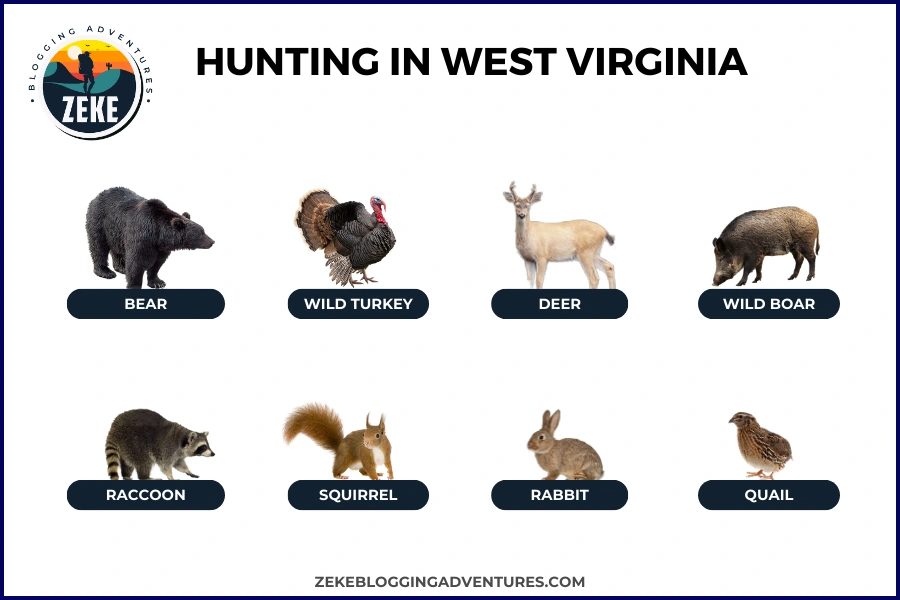
What Can You Hunt in West Virginia?
In the beautiful Mountain State of West Virginia, you’ll find some of the best hunting grounds in the country. Deer are plentiful here and make for an exciting hunt – whether it be white-tailed or mule deer.
Turkey hunting is also a popular pastime with many wild turkeys living throughout WV’s woodlands. For those who seek more of a challenge, black bears can be found foraging across certain regions as well!
Small game such as squirrels, coyotes, quails, pheasants, foxes, and rabbits offer great opportunities too so even beginners have something to look forward to when out in nature. Waterfowl like ducks and geese aren’t left out either; there are plenty of areas that cater specifically to them.
Deer
Let’s talk about one of the most iconic game animals in West Virginia: the white-tailed deer. Hunters in the Mountain State may have already had their sights set on these agile and graceful creatures, and for good reason! With diverse landscapes ranging from rolling hills to dense hardwood forests, there’s plenty of shelter as well as a variety of food sources like acorns, green plants, fruits, and even mushrooms.
But what truly sets the white-tails apart is their adaptability; they’re experts at navigating the rugged terrains which makes hunting both challenging and rewarding. So if you’re looking for an impressive buck with keen hearing and smell senses that require stealth & strategy – then look no further than West Virginia during rut season when bucks are especially active.
At its core, hunting isn’t simply a catch; it’s understanding your prey with respect while admiring nature’s beauty along with experiencing thrilling moments that will last forever. And here in West Virginia, we know this relationship all too well, making it an addictive experience whether you’re experienced or just starting out!
White-tailed Deer Season West Virginia
| Season | Dates |
| Buck Firearms | Nov 20 – Dec 03 |
| Archery & Crossbow | Sep 30 – Dec 31 |
| Muzzleloader | Dec 11 – Dec 17 |
| Antlerless (Certain Counties) | Oct 26 – Oct 29 |
| Antlerless (Certain Counties) | Nov 20 – Dec 03 |
| Antlerless (Certain Counties) | Dec 07 – Dec 10 |
| Antlerless (Certain Counties) | Dec 28 – Dec 31 |
| Youth/Class Q/QQ/Class XS | Oct 21 – Oct 22 |
| Split Season | Dec 26 – Dec 27 |
| Winter Mountaineer Heritage (1 deer per day bag limit) | Jan 11 – Jan 14 |
Bear
The thriving black bear population in West Virginia has made the state a prime spot for hunting. Whether you’re scaling the Appalachian Mountains or exploring Eastern Panhandle hills, these majestic beasts can be found all over. One of the best ways to experience their beauty up close is through spot-and-stalk hunting – an art that requires patience, skill, and respect for your quarry.
Before heading out on your hunt, make sure you know local laws and obtain all necessary permits – this will help keep bears safe as well as yourself! Typically hunted during their active feeding season (fall), having binoculars and camouflage clothing are musts if you want to increase your chances of success.
Plus, it’s important to check weather conditions since they can significantly impact bear behavior; studying maps of potential hunting areas beforehand helps too. Safety should always come first when dealing with wild animals like bears so don’t forget: carry bear spray or a firearm with you just in case!
Bear Season WV
| Season | Dates | Bag Limit |
| Bear Winter Mountaineer Heritage | Jan 11 – Jan 14 | 1 bear |
| Archery & Crossbow | Sep 30 – Dec 31 | 1 per day |
| Gun | Sep 02 – Sep 10, Oct 07 – Oct 13, Oct 26 – Oct 29, Nov 20 – Dec 03, Dec 04 – Dec 31 | 1 per day |
| Youth/Class Q/Class XS | Sep 16 – Sep 17 | 1 per day |
| Split Season | Oct 21 – Oct 22 | 1 per day |
Wild Boar
Wild boars, also known as feral pigs or hogs, are descendants of domesticated animals that have adapted to life in the wild. These creatures possess intelligence and strength making them an exciting target for hunters.
In West Virginia, you can find them in forests, swamps, and agricultural fields; they usually move around during the early morning and late evening hours but watch out because they can be active at night too.
When hunting wild boar safety is key: these animals weigh up to 300 pounds with sharp tusks which could cause serious injuries if not treated carefully. To successfully hunt, you must use proper gear and techniques when approaching your prey. The spot-and-stalk method involves staying concealed while slowly stalking your target from a distance or baiting by setting up food such as corn or apples near a feeding area and then waiting for it to show itself.
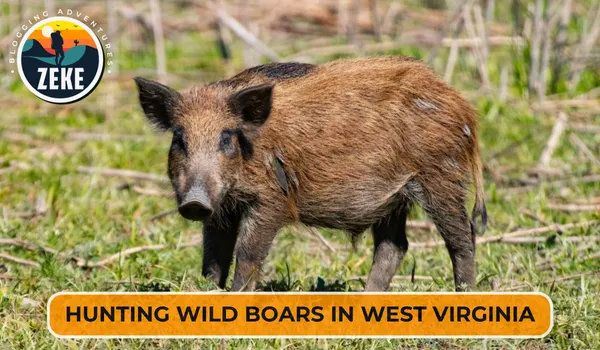
Wild Boar Season West Virginia
| Season | Dates | Bag Limit |
| Gun Season | Oct 28 – Nov 04 | 1 per day |
| Split Season | Feb 02 – Feb 04 | 1 per day |
| Archery & Crossbow | Sep 30 – Dec 31 | 1 per day |
| Split Season | Feb 02 – Feb 04 | 1 per day |
Wild Turkey
With its diverse habitats and elusive birds, the Mountain State is a prime destination for turkey hunters of all levels. To reap the most rewards from such an adventure, it’s important to approach it with patience, skill, and ethical practices.
Wild turkeys are renowned for their size and agility – two qualities that make them formidable opponents when hunting. A successful hunt requires knowledge of terrain as well as strategies to call in these warily creatures so you can take aim with confidence. Taking safety into consideration is essential throughout this process; even experienced hunters should always remain alert while on the trails.
Securing proper licenses and permits before setting out on your excursion is also important; not only will they keep you within legal limits but they’ll also help protect wildlife populations by controlling game numbers over time. Once your paperwork has been taken care of, however, you’re free to embark on what could very well be one of your most memorable hunts yet.
Turkey Season WV
| Season | Dates | Bag Limit |
| Turkey Winter Mountaineer Heritage | Jan 11 – Jan 14 | 1 turkey |
| Turkey Fall Segment 01 | Oct 14 – Oct 22 | 1 per day |
| Turkey Fall Segment 02 | Oct 30 – Nov 05 | 1 per day |
| Turkey Fall Segment 03 | Oct 30 – Nov 19 | 1 per day |
| Turkey Spring (Bearded only) | Apr 15 – May 19 | 1 per day |
| Youth Season | Apr 13 – Apr 14 | 1 per day |
Squirrel
Let’s discuss the different types of squirrels that are native to West Virginia. The most common one is the Eastern Gray Squirrel with its classic gray fur and long tail. Then we have the Fox Squirrel – it has a reddish-brown coat and is larger in size than its gray cousin. Also, there’s the Southern Flying Squirrel which stands out for being able to glide through air due to their smaller size and unique membrane between legs!
When hunting these animals in West Virginia, you’ll need good aim as they can be surprisingly agile when scared or threatened. To increase your chances of success, we recommend heading out in the early morning/late afternoon hours as this is when they’re most active – running around looking for food or chasing each other playfully during those times!
When it comes down to equipment, using something like a .22 caliber rifle loaded with small shot sizes such as #6/#7 1/2 will do just fine (it won’t cause too much damage but still enough power).
As far as where these critters hang out: think wooded areas such as oak forests or hickory groves; cornfields & fruit trees should also provide plenty of opportunities.
Squirrel Season West Virginia
| Season | Dates | Bag Limit |
| Gray, Albino, Fox & Black Squirrel | Sep 09 – Feb 29 | 6 per day |
| Youth Season | Sep 02 – Sep 03 | 6 per day |
Rabbit
Hunting rabbits in West Virginia can be a thrilling experience, but you need to know the basics first. Rabbits are most active at dawn and dusk, so make sure to plan your hunt accordingly if you want success. They’re also incredibly fast and agile creatures, so having quick reflexes is essential for successful hunting.
When choosing a spot to hunt from, look for areas with plenty of dense brush and undergrowth; these provide great hiding spots that rabbits love to take advantage of. To increase your chances of success while hunting in West Virginia, keep an eye out for tracks or droppings that indicate recent activity near the area.
The best weapon when it comes to rabbit hunting is a 20-gauge shotgun loaded with a #6 shot – this will give you enough firepower without causing too much damage should you miss the target! Make sure your aim is on point though as these critters aren’t easy targets due to their speediness.
If possible, get yourself a specially trained dog – they have incredible noses that sniff out hidden bunnies like nobody’s business! Otherwise walking slowly through potential habitats while scanning carefully gives decent results too – just remember patience pays off here!
Safety precautions must always be taken seriously when going after wild animals: Wear camouflaged or earthy-colored clothing suitable for blending into surroundings.
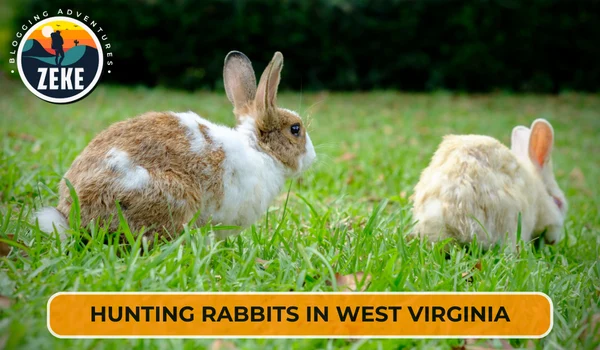
Rabbit Season WV
| Season | Dates | Bag Limit |
| Cottontail Rabbit | Nov 04 – Feb 29 | 5 per day |
| Snowshoe Hare | Nov 04 – Feb 29 | 2 per day |
Quail
Hunting quail in West Virginia is more than just a sport, it’s ingrained into the culture. There’s nothing quite like hearing that distinct whistle as a covey takes off and feeling the rush of excitement when you take aim – all part of what makes this hunting experience so special.
The best thing about quail hunting in WV? An abundance of public land to explore! With over 1 million acres available for hunters, there are countless opportunities to hone your skills. From national forests to wildlife management areas, each spot offers something unique and challenging when tracking these elusive birds.
But don’t be fooled by all that open space – quail know how to hide! That’s why having an experienced bird dog with you can make or break any hunt. They’re trained to sniff out even the most well-concealed quarry from their hiding spots. So if you want a successful outing, getting yourself (and your pup!) ready is key!
Quail Season
| Season | Dates | Bag Limit |
| Bobwhite Quail | Nov 04 – Jan 06 | 3 per day |
Raccoon
As seasoned hunters, we understand the importance of understanding our prey’s behavior. Raccoons are notorious nocturnal animals, making them difficult to hunt but adding an extra layer of excitement when they’re successfully tracked and located.
These critters have a stocky build with greyish-brown fur and can weigh between 10-30 pounds; their distinctive black mask around their eyes and bushy ringed tail make them easily recognizable in any environment. Omnivorous in nature, these mammals enjoy consuming fruits, nuts insects, and small animals like mice or even bird eggs – allowing them to survive anywhere from rural areas to bustling cities!
The fall season in West Virginia, it’s prime time for raccoon hunting because their fur is of the highest quality. Hunting dogs that have been specifically trained for this purpose are usually employed during this process; thanks to their keen sense of smell, they’re able to lead you right up the tree where your target hides or corner it until you take your shot accurately and efficiently.
Raccoon Season
| Season | Dates | Bag Limit |
| Hunting | Oct 14 – Feb 29 | 4 per day |
| Trapping | Nov 04 – Feb 29 | No Limit |
Fox Season
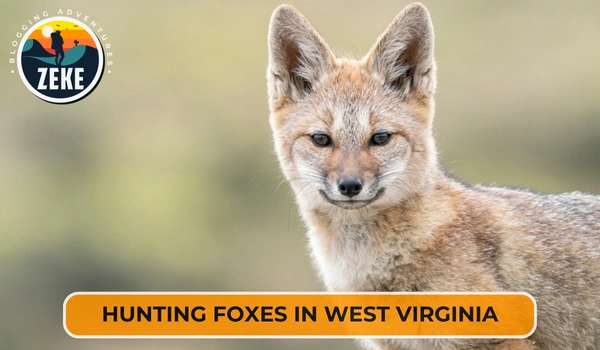
| Season | Dates | Bag Limit |
| Red & Gray Fox Hunting and Trapping | Nov 04 – Feb 29 | No Limit |
| Night Hunting with Artificial light | Jan 01 – Feb 29 | No Limit |
Coyote Season
| Season | Dates | Bag Limit |
| Hunting | Jan 01 – Dec 31 | No Limit |
| Trapping | Nov 04 – Feb 29 | No Limit |
Bobcat Season
| Season | Dates | Bag Limit |
| Hunting and Trapping | Nov 04 – Feb 29 | 3 per day |
Mink Season
| Season | Dates | Bag Limit |
| Trapping only | Nov 04 – Feb 29 | No Limit |
Muskrat Season
| Season | Dates | Bag Limit |
| Trapping only | Nov 04 – Feb 29 | No Limit |
Fisher Season
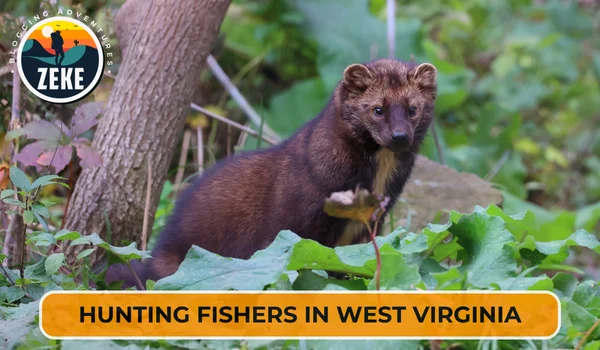
| Season | Dates | Bag Limit |
| Trapping only | Nov 04 – Jan 31 | 1 per day |
Beaver Season
| Season | Dates | Bag Limit |
| Trapping only | Nov 04 – Mar 31 | No Limit |
Otter Season
| Season | Dates | Bag Limit |
| Trapping only | Nov 04 – Feb 29 | 1 per day |
Opossum Season
| Season | Dates | Bag Limit |
| Hunting | Jan 01 – Dec 31 | No Limit |
| Trapping | Nov 04 – Feb 29 | No Limit |
Skunk Season
| Season | Dates | Bag Limit |
| Hunting | Jan 01 – Dec 31 | No Limit |
| Trapping | Nov 04 – Feb 29 | No Limit |
Weasel Season
| Season | Dates | Bag Limit |
| Hunting | Jan 01 – Dec 31 | No Limit |
| Trapping | Nov 04 – Feb 29 | No Limit |
Pigeon Season
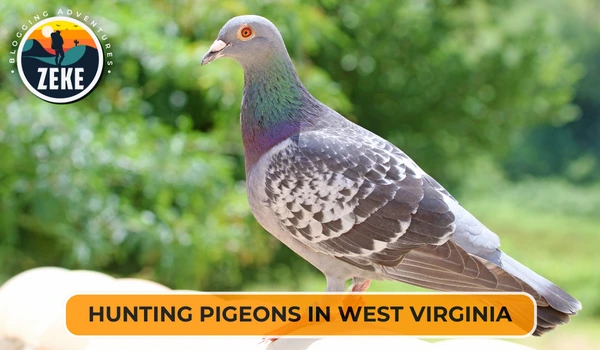
| Season | Dates | Bag Limit |
| Hunting | Jan 01 – Dec 31 | No Limit |
Woodchuck Season
| Season | Dates | Bag Limit |
| Hunting | Jan 01 – Dec 31 | No Limit |
Grouse Season
| Season | Dates | Bag Limit |
| Ruffed Grouse | Oct 04 – Feb 29 | 4 per day |
Pheasant Season
| Season | Dates | Bag Limit |
| General (Cock birds only) | Nov 04 – Jan 06 | 2 per day |
| Hillcrest WMA (Cock birds only) | Nov 11 – Dec 02 | 1 per day |
Crow Season
| Season | Dates | Bag Limit |
| Crow Split Season | Oct 01 – Nov 18 | No Limit |
| Crow Split Season | Jan 01 – Mar 02 | No Limit |
Dove Season
| Season | Dates | Bag Limit |
| Mourning Dove | Sep 01 – Oct 09 | 15 per day |
| Mourning Dove | Nov 01 – Nov 13 | 15 per day |
| Mourning Dove | Dec 20 – Jan 24 | 15 per day |
Duck Season
| Season | Dates | Bag Limit |
| Duck (Split Seasons) | Oct 01 – Oct 14 | 6 per day |
| Duck | Nov 07 – Nov 12 | 6 per day |
| Duck | Dec 23 – Jan 31 | 6 per day |
Coot & Merganser Season
| Season | Dates | Bag Limit |
| Coots & Mergansers | Oct 01 – Oct 14 | Coot: 15 daily Merganser: 5 daily |
| Coots & Mergansers | Nov 07 – Nov 12 | Coot: 15 daily Merganser: 5 daily |
| Coots & Mergansers | Dec 23 – Jan 31 | Coot: 15 daily Merganser: 5 daily |
Goose Season
| Season | Dates | Bag Limit |
| Early Canada Goose | Sep 01 – Sep 11 | 5 per day |
| Canada Goose/White-fronted Goose | Oct 01 – Oct 15 | 5 per day |
| Canada Goose/White-fronted Goose | Nov 07 – Nov 12 | 5 per day |
| Canada Goose/White-fronted Goose | Dec 04 – Jan 31 | 5 per day |
| Snow & Blue Goose | Oct 01 – Oct 15 | 5 per day |
| Snow & Blue Goose | Nov 07 – Nov 12 | 5 per day |
| Snow & Blue Goose | Dec 04 – Jan 31 | 5 per day |
Brant Season
| Season | Dates | Bag Limit |
| Brant | Dec 13 – Jan 31 | 2 per day |
English Sparrow Season
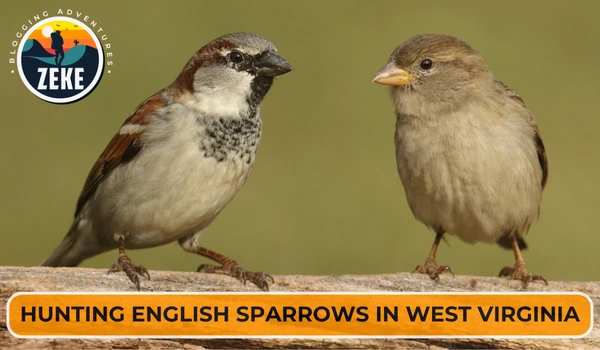
| Season | Dates | Bag Limit |
| English Sparrow | Jan 01 – Dec 31 | No Limit |
European Starling Season
| Season | Dates | Bag Limit |
| European Starling | Jan 01 – Dec 31 | No Limit |
Rail Season
| Season | Dates | Bag Limit |
| Sora & Virginia Rail | Sep 01 – Nov 09 | 10 per day |
Snipe Season
| Season | Dates | Bag Limit |
| Wilson’s Snipe | Sep 01 – Dec 16 | 8 per day |
Gallinule Season
| Season | Dates | Bag Limit |
| Gallinule | Oct 01 – Oct 14 | 15 per day |
| Gallinule | Dec 07 – Jan 31 | 15 per day |
Woodcock Season
| Season | Dates | Bag Limit |
| Woodcock | Oct 15 – Nov 19, Nov 28 – Dec 06 | 3 per day |
Youth Waterfowl Season
| Season | Dates | Bag Limit |
| Youth Waterfowl Days | Sep 17 & Nov 05 | Same as regular seasons |
West Virginia Hunting License Information
For all would-be hunters, regardless of age or residency status, getting a valid hunting license is a must for an unforgettable West Virginia adventure. Residents have the option to purchase either Class X (for ages 18 and up) or Class XJ (under 18 years old) licenses allowing them to hunt small game, deer, bear, turkey, and waterfowl.
For non-residents, it’s similarly straightforward with Class E (18+) or EE (under 18). There are also short-term options available if you’re only planning on staying in the state temporarily.
Price-wise, residents fare much better than non-residents – with annual passes ranging from $19-$119 depending on your circumstances – while seniors over 65 and disabled veterans can benefit from discounted rates too! And don’t forget that certain species will require additional permits so make sure you get these before setting out for your hunt.
Above everything else though, safety should always be a top priority when venturing into the wilderness; double-check that you’ve got all necessary equipment like applicable licenses/permits as well as appropriate gear before hunting in West Virginia.
Where Can You Hunt in West Virginia?
West Virginia is a paradise for outdoor enthusiasts, boasting over 1 million acres of public hunting land. From lush forests to rolling hills, the landscape offers an abundance of game species such as deer, turkey, bear, and more.
The Monongahela National Forest allows adventurous hunters access to 900,000 acres – perfect for tracking wild boar or elk in rugged terrain. Meanwhile, those looking to hunt waterfowl can explore the Canaan Valley National Wildlife Refuge. But if you’d rather not brave the elements alone, then many private outfitters provide guided hunts with exclusive access to prime areas throughout the Mountain state!
Public Hunting Places in West Virginia
Monongahela National Forest
Situated in the heart of West Virginia, Monongahela National Forest is an outdoor haven. Spanning over 900,000 acres, this expansive and diverse landscape offers a wealth of opportunities for hunters looking to bag their trophy buck or black bear. From rolling hills to steep mountainsides filled with thickets and lush vegetation, there’s never a dull moment here.
White-tailed deer are one of the most common game species found in this part of Appalachia. During November’s rut season, these bucks become active and vocal – providing the perfect opportunity for hunters from all walks of life to take home that prize catch they were after!
Meanwhile, black bears are also abundant here thanks to its rugged terrain full of food sources that provide ideal habitats for them to thrive in. For those seeking smaller prey such as wild turkeys or squirrels, then Monongahela National Forest won’t disappoint either; likewise, if you’re up for it, why not challenge yourself by trying your hand at hunting elusive grouse?
Just remember before heading out on your hunt, be sure to get all necessary permits and licenses from the forest office while following safety regulations so you can have peace of mind during your adventure into nature.
Canaan Valley National Wildlife Refuge
Located within its vast 16,000 acres, Canaan Valley National Wildlife Refuge is every adventurer’s paradise. Its vibrant tapestry of forests, wetlands, and meadows serves as a sanctuary for creatures ranging from the graceful white-tailed deer to the majestic black bear, and from the elusive wild turkey to the chirpy grouse. Given such biodiversity, it’s no wonder hunters nationwide converge here for a thrilling adventure!
And there’s a twist: you can turn back time by hunting with age-old tools like muzzleloaders or longbows, adding an unforgettable touch to your hunting journey. But if you lean towards the contemporary, there are spots reserved for modern firearms too!
Kanawha State Forest
Kanawha State Forest houses an abundance of wildlife from white-tailed deer and black bear to wild turkey and smaller game like rabbits and squirrels, not to mention the plentiful fish in its streams and lakes – perfect for anyone looking to cast a line! Spanning over 9,000 acres of varied terrain ranging from steep ridges to rolling hills, there are plenty of challenges for hunters of all levels here.
But before you take off into this outdoor oasis, it’s essential that you obtain any necessary permits or licenses required by the West Virginia Division Of Natural Resources – their website is your go-to spot for up-to-date regulations on hunting in Kanawha State Forest.
Once everything has been squared away, make sure you’re fully prepared with bright orange clothing so that other hunters can easily spot you as well as the right equipment such as first aid kits & compasses… not forgetting to inform someone where exactly it is that you’re headed! Safety always comes first when out hunting in West Virginia so keep these precautions a top priority at all times.
Greenbrier State Forest
Located in the scenic heart of West Virginia, Greenbrier State Forest spreads across 5,100 acres of untouched natural beauty. This vast expanse is a playground for hunters, with its varied landscapes and rich wildlife.
The forest is renowned for its white-tailed deer population. These regal beings wander the woods, presenting a thrilling quest for hunters. The intertwining vegetation and undulating terrains add layers of challenge and excitement. Thanks to diligent conservation efforts, the deer population thrives, promising ample opportunities for future hunters.
But Greenbrier doesn’t stop at deer. Its woods also house black bears, wild turkeys, and smaller game like squirrels and rabbits. Whether you’re an archer or a marksman, Greenbrier State Forest offers every hunter a memorable experience.
Private Hunting Places in West Virginia
In West Virginia, you need the landowner’s permission to hunt on private land, which you can get by leasing or simply asking. Building a good rapport with the landowner is beneficial, as they may offer valuable insights into the region and its animals.
Different parts of the state have varied game; the south is rich in deer and turkey, while the north is great for bear and small game hunting. Private hunting lands in West Virginia provide an exclusive hunting environment with less competition than public areas. Ensure you have the correct licenses and are aware of local rules. Prioritize safety, wear visible clothing, and respect property limits.
